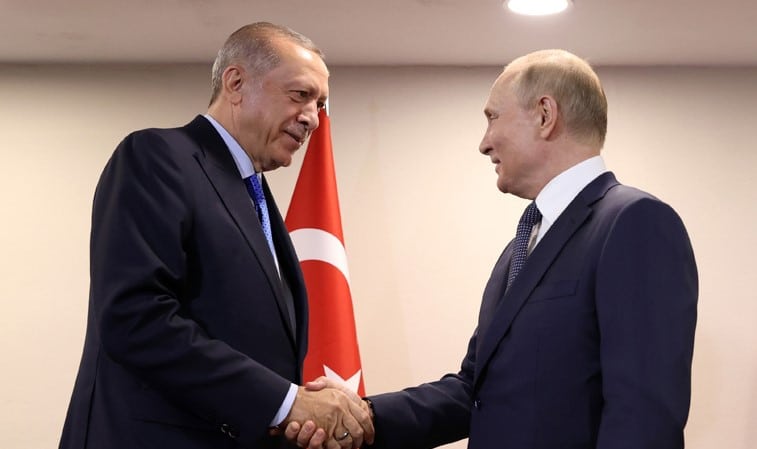Russia and Turkey agreed to enhance economic cooperation at a meeting held in the city of Sochi, Russia, on August 5.
This meeting was viewed with some alarm by European countries, coming at a time when the West has sought to reduce the scope of its economic relations with Russia over the ongoing war in Ukraine.
However, Turkish President Recip Tayyib Erdogan and Russian President Vladimir Putin have not always maintained warm relations with each other. The two countries are often viewed as geopolitical rivals, whose tensions can be traced back by many centuries. Currently, the bilateral relationship appears to be growing strong, and experts say this could lead to some kind of retaliation from the West. We explain what has happened, and how Europe may react from here onwards.
What is the agreement signed between Russia and Turkey?
Turkey’s TRT television channel said in a report citing statements made by President Erdogan, that the two leaders had touched upon gas exports to Turkey and agreed to partially pay for them in Russian currency, the ruble.
According to a Bloomberg report, five Turkish banks have adopted Russia’s Mir payments system for payment in rubles.
The countries also agreed to “meet one another’s expectations on the economy and energy”. Russian Deputy Prime Minister Alexander Novak told reporters: “We talked about the financial banking sector — on which big agreements were also reached — so that our commercial companies, our citizens can make transactions during their tourist trips and exchange money as part of trade turnover,” according to Russian media agency TASS.
Other areas of cooperation mentioned in a Joint Press Statement released afterwards were transportation, commerce, agriculture, industry, finance, tourism and construction.
EU concerns
One EU official told Financial Times that the bloc was monitoring Turkish-Russian relations “more and more closely”. A senior Western official also suggested that in case of more extreme measures, countries might call for the withdrawal of investments from Turkey and stop their banks and companies from operating in the country.
Another source of concern could be Russia’s Mir payment system, the Financial Times reported, which has been adopted by 5 Turkish banks. With Visa and Mastercard suspending their operations in Russia since the invasion of Ukraine, Russian tourists in Turkey can now use their Mir card, effectively circumventing some Western sanctions.
At the same time, Turkey is an important partner for the EU, without being an official member. The country has also been a longtime member of the North Atlantic Treaty Organization (NATO), the security alliance of Europe and Western countries.
It holds the key to allowing Sweden and Finland admission into NATO, which the alliance might be eager to do given the events in Ukraine. The Financial Times report also referred to Turkey’s instrumental role in dealing with the Syrian refugee crisis, stating that the country hosted around 3.7 million Syrians as part of a deal with the EU, and “helped to stem the flow of migrants to Europe.” On the whole, Turkey is an important partner with the West and taking action against it could lead to a new range of issues cropping up for the West.
